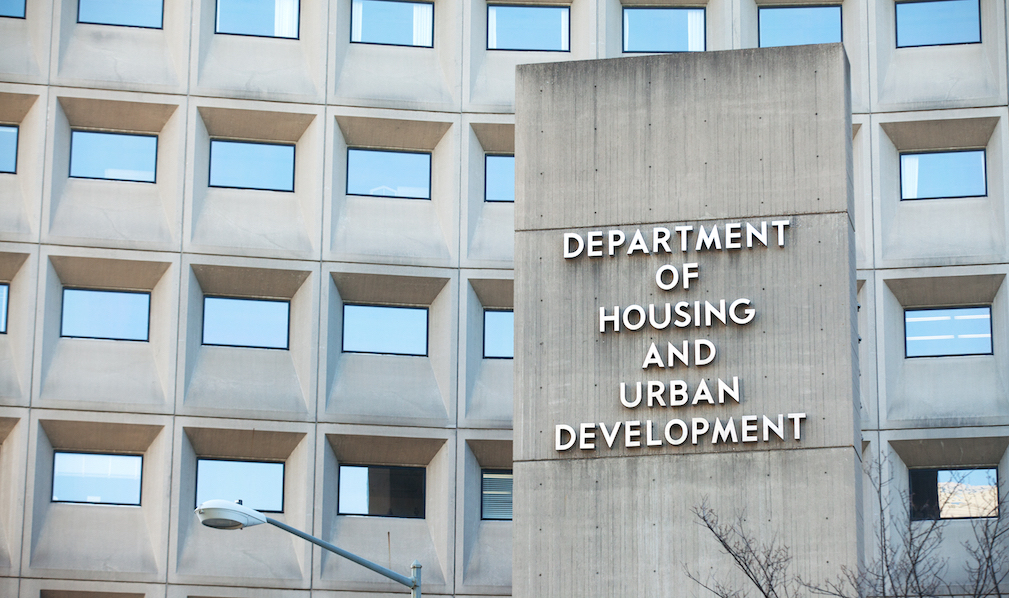The Trump administration just took another significant step toward derailing a controversial fair housing rule issued by the Obama administration in 2015.
Last year, Department of Housing and Urban Development Secretary Ben Carson said that HUD will look to “reinterpret” the Obama administration’s Affirmatively Furthering Fair Housing rule, which requires that cities and towns receiving federal funding to examine their local housing patterns for racial bias and to design a plan to address any measurable bias.
Then, in January, HUD announced that it was delaying the deadline for local governments to submit their fair housing evaluations by one year.
But delaying the fair housing evaluations, which were required as part of the AFFH rule, essentially “gutted” the AFFH rule, according to former HUD Secretary Julián Castro, who oversaw the rule’s announcement in 2015.
At the time, HUD said that the delay was due to technological issues with the Local Government Assessment Tool, a computer program that was to be used by local governments to submit their relevant housing data.
HUD said that it planned to use the delay to fix the tool, but now, just over five months after delaying the submission deadline, HUD is killing the Local Government Assessment Tool altogether.
HUD announced late Friday afternoon that it is “withdrawing a computer assessment tool originally intended to be helpful to local governments in meeting their obligations under the Fair Housing Act to ‘affirmatively further fair housing.’”
According to HUD, rather than assisting local governments in submitting acceptable Assessments of Fair Housing, the tool was “confusing, difficult to use, and frequently produced unacceptable assessments.”
Therefore, HUD is withdrawing the Local Government Assessment Tool, and plans to launch a series of “national listening sessions” and will seek out comments from the public on the “best framework for local governments to further fair housing choices in their communities.”
According to HUD, there was “convincing evidence” that the Assessment of Fair Housing tool for local governments “wasn’t working well.”
Per information provided by HUD, more than a third of early submitters initially failed to generate an assessment that could be accepted by HUD’s system, “not for lack of trying but because the assessment tool intended to help them wasn’t helpful in promoting fair housing.”
HUD said Friday that it found the tool to be “flawed” and now plans to review the tool and its function under the AFFH regulations to “make it less burdensome and more helpful in creating impactful fair housing goals.”
And with no tool to submit the fair housing assessments, HUD is withdrawing the previous delay to the submission deadline. There will be no submissions until HUD devises an appropriate tool to do so, HUD explained.
HUD’s AFFH submission delay already earned a lawsuit from several civil rights groups, led by the National Fair Housing Alliance, and earlier this week, the state of New York said that it was moving to join the lawsuit.
And now, it’s removing the deadline completely.
“We believe in furthering fair housing choice in our neighborhoods, but we have to help, not hinder those who have to put our rules into practice,” HUD Assistant Secretary for Fair Housing and Equal Opportunity Anna Maria Farías said. “We must make certain that our tools can facilitate the goals we all share—to build inclusive and sustainable communities free from discrimination.”
HUD said that as part of the announcement, it is “reaffirming its commitment to the Fair Housing Act and the law’s requirement that recipients of HUD funding must affirmatively further fair housing.”
HUD released several documents explaining its reasons for making the decision and its plans for what happens next.
As for why it is withdrawing the submission tool, HUD provided several reasons.
Included among those are the high failure rate of incoming assessments, as in HUD’s system cannot process the applications properly.
From HUD:
For instance, only 37% of the initial 49 submissions (18/49) had been determined to be acceptable on initial submission. HUD returned 35% of these (17/49) as unacceptable. Many other AFH submissions (28% or 14/49) were accepted only after the program participants submitted revisions and additional information in the form of addendums in response to HUD’s technical assistance. Taken together, 63% of the 49 AFHs submitted were either: (a) returned as unacceptable and have not been successfully resubmitted, or (b) accepted only after the program participant supplied necessary additional information and revisions.
HUD said that it identified a number of causes of the failures, including: inadequate community participation; insufficient use of local data and knowledge; lack of regional analysis; problems with identification of contributing factors; prioritization of contributing factors; problems with setting goals; and inadequate responses due to duplication of questions.
Additionally, HUD said that it does not have the resources to deal with a similar number of technical problems as the number of submissions was due to ramp up over the next few years.
“HUD does not have the resources to continue to provide program participants with the level of technical assistance that they would need to submit acceptable AFHs using the current version of the Local Government Assessment Tool,” HUD said in its announcement.
HUD said that it estimates that it spent more $3.5 million on technical assistance for the initial round of 49 AFH submissions.
During this year, 104 local government program participants were scheduled to submit fair housing reviews to HUD. Then, in 2019, the number of local governments scheduled to submit was due to rise to 752.
“The level of technical assistance provided to the initial 49 participants could not be extended to these numbers of AFHs due in 2018 and 2019,” HUD said. “This would lead to a great deal of uncertainty for program participants as to how to submit an acceptable AFH. Such uncertainty would, in turn, lead to uncertainty regarding the status of their HUD-funded programs so long as they do not have an accepted AFH in place.”






